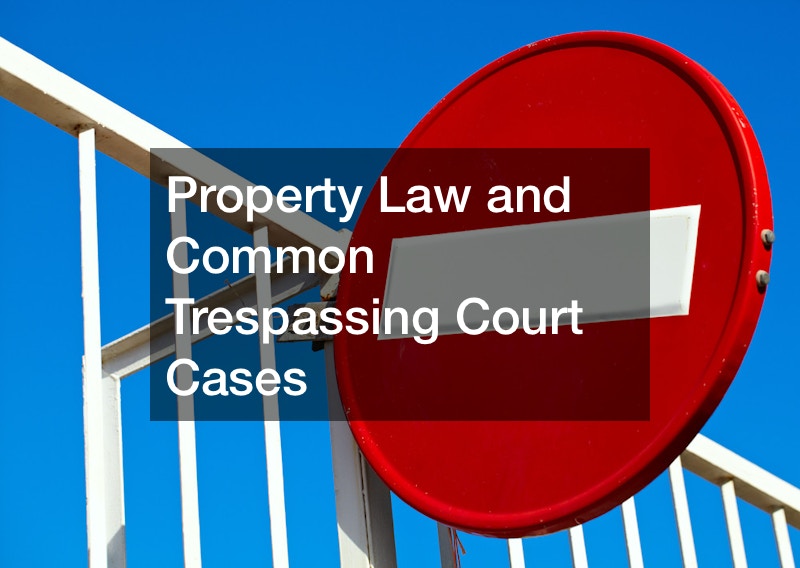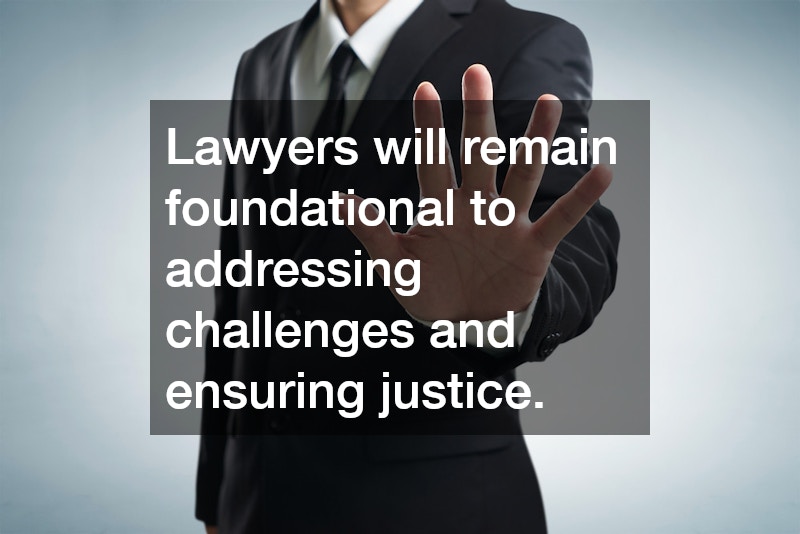
According to the CATO Institute, property owners enjoy several legally protected rights, including the right to use their property in any legal way they desire and the right to privacy. This means that they can exclude people from entering their property without permission. A violation of such exclusions would result in trespassing, and it would be well within their rights to seek legal recourse, including in court. Below is a look at what trespassing entails and various trespassing court cases that can result from violating an individual’s property rights.
Defining Trespassing
The Merriam-Webster dictionary defines trespassing as unlawful or unwarranted intrusion or the invasion of another individual’s property, territory, or rights. And according to Cornell University Law School, trespassing is the act of knowingly entering another person’s property without their permission, thus infringing on their property rights and interests. There are several laws against trespassing; therefore, violations can result in legal consequences.
However, you need several elements to prove a trespassing charge during trespassing court cases. This includes intentional interference or entry, lack of permission or authority, and your ownership or control of the property. Therefore, a stranger entering your home’s garage without your consent would be committing an act of trespassing. However, it wouldn’t be considered trespassing if they wandered onto your property by mistake or if you invited them yourself.
Nonetheless, trespassing can occur after a person remains on your property after you’ve withdrawn their permission to be there. For example, if a stranger mistakenly wanders onto your property but refuses to leave after learning you own it, they would be trespassing. Likewise, a person who refuses to leave your property after you’ve uninvited them would be committing an act of trespass.
Trespassing on Private Property
Most types of trespassing court cases involve trespassing on private property. This can include unauthorized entry into private premises like homes, office buildings, real estate, etc. Additionally, according to Chron, private businesses can ask someone to leave for any reason, failure to which they can be arrested and charged with trespassing on private property.
Trespassing on private property doesn’t always require ownership rights. For example, if you rent a house in a mobile home park, you have control rights over the property as long as you use it for legal and agreed-upon reasons. Therefore, anyone who enters your home without your permission will be trespassing. Sometimes, this can even include the landlord — if they make an illegal entry without your permission.
Lastly, trespassing on private property doesn’t always have to include entry. Some actions can be considered an intrusion on another person’s property and prosecuted as trespassing. For example, throwing trash into someone else’s compound is considered trespassing, even without having entered the premises. Likewise, building a home addition that crosses into the neighbor’s property line can result in trespassing charges and a court case.

Trespassing on Public Property
Trespassing court cases are not limited to private properties; they can also occur because of public property intrusion. While these properties are usually open to the public, some rules and regulations must be followed when accessing and using them. As a result, anyone who violates these rules can be arrested and charged with trespassing.
One of the top examples of trespassing on public property is when an unauthorized individual accesses (or attempts to access) a restricted public property. For example, properties like the White House, military bases, and law enforcement buildings are public but limit who can access them. Therefore, trying to force your way in without permission or authorization will likely lead to an arrest and trespassing charges.
Another example of public property trespassing is when an individual attempts to access out-of-bounds areas in a property open to the public. For instance, while it might be okay to visit an elementary school, you’re likely to be arrested for trespassing if you try to enter the staff room without authorization. Lastly, you could also be charged with trespassing if you’re given a legal direction to leave a public property, say, for example, by a police officer but refuse to do so.
Trespass to Land Court Cases
Trespass to the land occurs when an individual enters or interferes with another person’s land unlawfully or without the owner’s permission. It is a form of private property trespassing that deals specifically with land (actual properties). And in this case, the term ‘land’ covers the property’s airspace and the subsoil up to a reasonable extent.
According to FindLaw, intent is one of the principal elements of trespassing court cases involving land. This means an individual must knowingly or negligently enter the grounds for a court case to stand. For example, it might not be considered a trespass if you accidentally venture into an open land when hiking. However, you will be trespassing (and can even be charged criminally) if you jump over a field fence onto private property.
Again, trespass to land can involve other actions beyond physical intrusion. For example, taking animals or other property from someone’s property without their permission can be viewed as trespassing. In addition, according to the University of Maryland, one can be charged with trespassing for intrusive actions such as directing surface water drainage onto a neighbor’s land.

Trespass to Chattels Court Cases
Trespass to chattels is a trespassing law that deals with private property. However, it’s unique because it only deals with personal property instead of actual property like land or building. Some items that might be covered under this law include vehicles, electronic devices, money, clothes, pets, art, and other personal possessions.
However, it’s important to note that not all personal possessions are covered by trespass to chattels laws. Some may be considered ‘real property’ if attached to the land or a building. A good example would be decorative fencing that’s being used as an art piece but is mounted to the ground. In such a case, trespass to land laws would cover any intrusion involving the fence.
According to Cornell Law School, trespassing to chattels is under civil tort laws. As a result, one of the top aspects of the resulting trespassing court cases is proving that damage or harm was incurred. So, for example, you can’t sue your roommate if they borrow your belongings without asking but return them in one piece. However, you can file a case against them if they damage your property or if you can prove that taking it away from you caused you to incur a loss.
Breaking and Entering Cases
According to LegalMatch, breaking and entering offenses are primarily prosecuted as felonies, as it often involves an element of a crime, for example, burglary. However, there are instances where these actions might not be prosecutable as felonies. In such cases, the prosecutor may pursue a trespassing charge.
An excellent example of where breaking and entering can result in trespassing court cases is in jurisdictions that don’t specify these actions as criminal offenses. In such a case, an individual will likely be charged with trespassing instead of breaking and entering. And depending on the circumstances, other charges, such as burglary, might be added.
But even in areas where breaking and entering is a felony, there must be an intent to commit a crime. Therefore, situations involving no criminal intent are prosecuted as trespassing. A good example would be when someone breaks through secure door locks in a building, but only to shelter away from the freezing temperatures outdoors. So, while they can’t be prosecuted with the intent to commit a crime, they’re likely to face trespassing charges when arrested.

Criminal Trespassing
In most cases, trespassing on private property is a minor infraction that will, at most, earn you a warning from the property owner or the police. However, in some instances, one can face criminal charges in court. And unfortunately, criminal trespassing court cases are serious, often resulting in hefty penalties or prison time if convicted.
However, not all trespassing violations result in criminal charges. Instead, a few requirements are needed before the police and prosecutors become involved. One such requirement is the intentional intrusion into private property without permission or authority. For example, someone who breaks through commercial steel windows when trespassing will face criminal charges.
In other jurisdictions, criminal trespassing can be as simple as ignoring ‘no trespassing’ warning signs or jumping over a fenced property. You could also be charged in a criminal court for refusing to leave a property after realizing you’re trespassing or when the permission to remain on the premises has been revoked. Lastly, an individual can be charged with criminal trespassing if they commit a crime or cause extensive damage to private property during their unlawful intrusion.
Civil Trespassing
Civil trespassing is similar to criminal trespass with one significant difference; they are enforced by private citizens instead of law enforcement officers. Therefore, it’s a less strict law that will not result in any jail time if convicted. However, it can still result in court injunctions or hefty fines.
But, like with criminal trespassing, not all intrusions will result in civil trespassing court cases. For example, according to Citizens Information, you must show proof of injuries or loss during most civil proceedings. Therefore, a simple intrusion that doesn’t result in any damage or suffering is unlikely to result in a court case.
Again, with civil trespassing, there must be an element of either intent or negligence by an individual when accessing the property. Therefore, you’re unlikely to prosecute someone who mistakenly enters your property, despite how annoying it might be. So, in such a case, the best solution is to use warning signs or temporary fence rentals to mark your property. This way, you can prove willful intent and perhaps even secure a criminal trespassing charge against violators.

Aggravated Trespassing Charges
According to Law Insider, aggravated trespassing is an illegal intrusion into a property where an individual attempts to interfere or intimidate others from carrying out lawful activities. It’s a less severe offense than criminal trespassing. Nonetheless, it usually involves criminal charges, which can result in a prison sentence or fines.
Aggravated trespassing is usually used when prosecuting disruptive protesters. For example, an individual can be charged with the offense if they chain themselves to the windows and door of a property to disrupt the operations of the premises. Likewise, protestors who issue threats against other individuals on private property can be charged with aggravated trespassing.
In some jurisdictions, an individual can be charged with aggravated trespassing if they return to a property they had been asked to leave. For example, in the case of illegal protesters, it’s an offense to return to the exact property after being asked to leave. Additionally, according to FindLaw, one can be charged with aggravated trespassing in California if they enter another individual’s property within 30 days of issuing threats of physical harm.
Defense Options for Trespassing Court Cases
Being charged with a trespassing offense in a court of law is not a fun experience. At best, you have to deal with the hassles of navigating the legal system, and, in the worst case, you can receive a prison sentence or a hefty fine. Therefore, it’s vital to have a good defense when facing trespassing charges.
One of the top defenses for trespassing court cases is to offer proof of consent for entry into the property. For example, a contractor hired to install metal roofing has permission to be on the property and thus cannot be convicted of trespassing. Consent can also be implied, for example, when delivery workers drop off packages.
Another top defense for trespassing charges is to show necessity. For example, you can claim in court that you entered a property for a necessary action, such as protecting the public against harm or saving an individual’s life from bodily injuries or death. During the trial, your lawyer can also come up with more defense options, such as offering proof that the property in dispute is public land or that the intrusion was an honest mistake.
Entering someone’s property without permission is not unusual; in most cases, it’s due to an honest mistake. However, in some situations, it can result in trespassing court cases, especially where a crime has been committed. A property owner can also file civil charges against a trespasser, especially in the case of property damage or repeated trespassing. The above are some top cases involving trespassing, the actions that can lead to them, and some defense ideas if you’re ever accused of being a trespasser.



